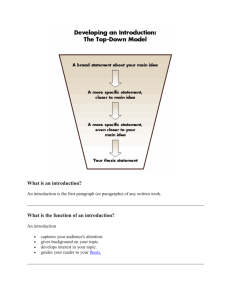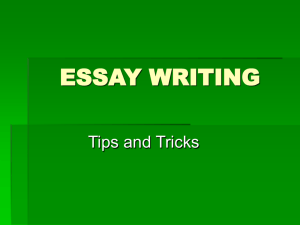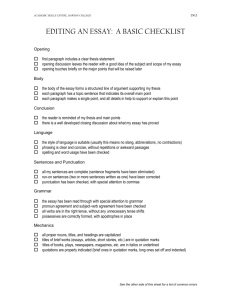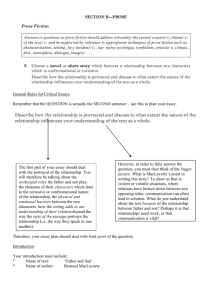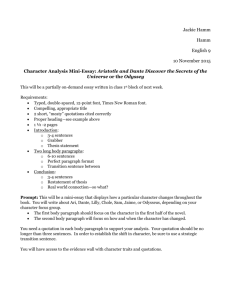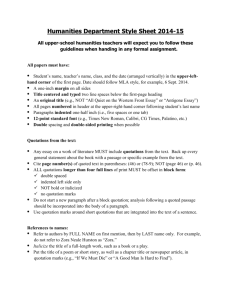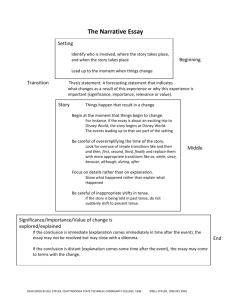Essay Writing Checklist
advertisement
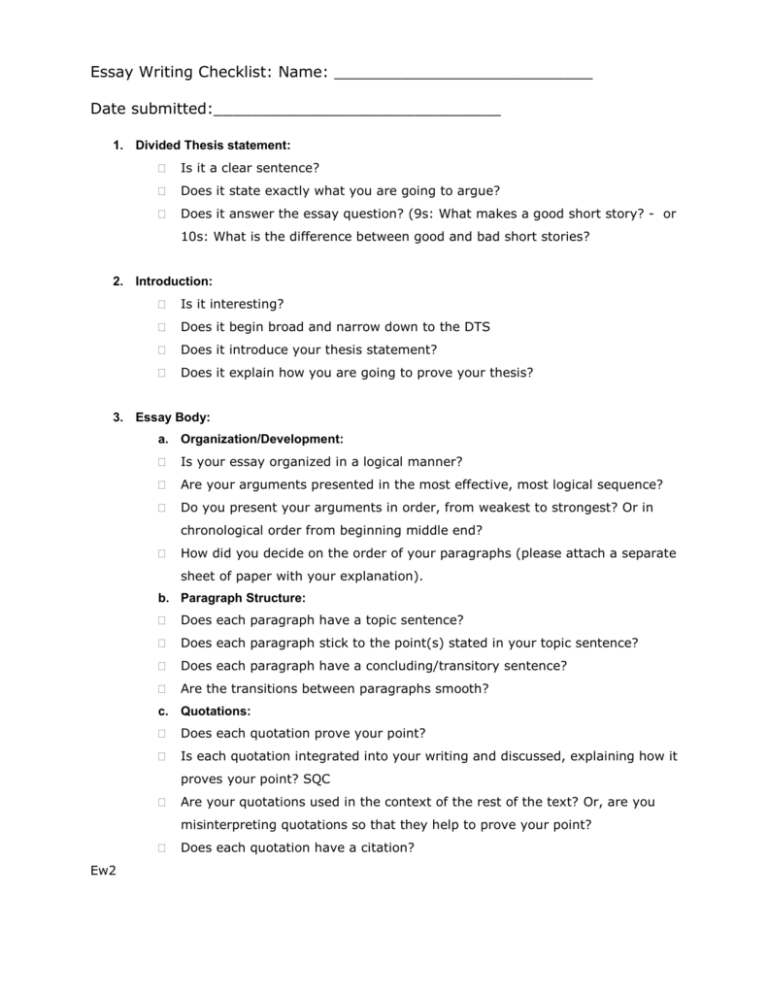
Essay Writing Checklist: Name: ___________________________ Date submitted:______________________________ 1. Divided Thesis statement: Is it a clear sentence? Does it state exactly what you are going to argue? Does it answer the essay question? (9s: What makes a good short story? - or 10s: What is the difference between good and bad short stories? 2. Introduction: Is it interesting? Does it begin broad and narrow down to the DTS Does it introduce your thesis statement? Does it explain how you are going to prove your thesis? 3. Essay Body: a. Organization/Development: Is your essay organized in a logical manner? Are your arguments presented in the most effective, most logical sequence? Do you present your arguments in order, from weakest to strongest? Or in chronological order from beginning middle end? How did you decide on the order of your paragraphs (please attach a separate sheet of paper with your explanation). b. Paragraph Structure: Does each paragraph have a topic sentence? Does each paragraph stick to the point(s) stated in your topic sentence? Does each paragraph have a concluding/transitory sentence? Are the transitions between paragraphs smooth? c. Quotations: Does each quotation prove your point? Is each quotation integrated into your writing and discussed, explaining how it proves your point? SQC Are your quotations used in the context of the rest of the text? Or, are you misinterpreting quotations so that they help to prove your point? Ew2 Does each quotation have a citation? 4. Conclusion Does it summarize your argument? Does it restate your thesis in light of the arguments you have presented in your essay? Does your conclusion introduce new material? Does it include a quotation that you have not fully explained in the body of your essay? It shouldn't! Do answer the questions, “So what?” and “Who cares?” 5. Writing Style Do not use vague references (i.e., he, she, it, this, they, etc.). When you use these words, ask yourself if it is clear as to what/whom you are referring. Avoid wordiness. Have you cut all of the "dead wood" from your sentences? Beware of generalizations. Do not use these unless absolutely necessary. If you must use a generalization, make sure that you have provided sufficient evidence. Have you used examples, specific details, concrete description(s), etc.? Avoid passive tense. Use active verbs wherever you can. Use the present tense when writing about events in the stories or when discussing the author’s achievements or your ideas. Have you used the most precise word or term that you can? Are you sure that you understand it and are using it correctly? Avoid clichés and slang/colloquialisms. Is your language sufficiently academic for the topic at hand? Can you combine sentences to avoid repetition? 6. Proofreading Eliminate contractions Watch for comma splices and misused semicolons. Make sure that your sentences are complete: no sentence fragments or runon sentences. Beware of dangling/misplaced modifiers. Be sure that you have no subject-verb, pronoun-antecedent, and/or tense agreement problems. Watch verb tenses. Have you referred to the text in present tense? Is everything spelled correctly? Have you used each word correctly? Are your in-line citations properly formatted? Is your works cited page properly formatted? Do your online sources have working URLs and the date you accessed them?


